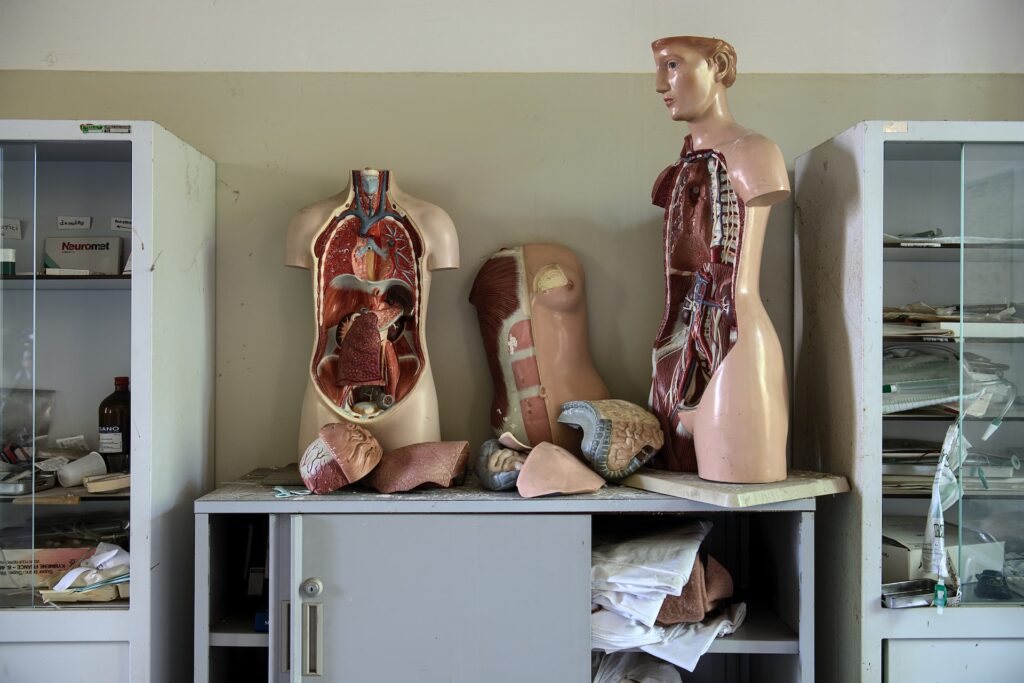Revolutionizing Organ Donation: How AI is Selecting Optimal Transplants
AI is Transforming Organ Transplantation
A groundbreaking approach to evaluate organ quality for transplantation is on the horizon, promising to save lives and significantly reduce costs. The National Institute for Health and Care Research (NIHR) is investing over £1 million into developing this innovative technology known as Organ Quality Assessment (OrQA). This system utilizes principles similar to artificial intelligence facial recognition to assess organ quality.
It is estimated that this technology could enable approximately 200 additional kidney transplants and 100 more liver transplants annually in the UK. Colin Wilson, a transplant surgeon at Newcastle upon Tyne Hospitals NHS Foundation Trust and co-lead on the project, stated, “Transplantation provides the best outcome for patients suffering from organ failure. However, some organs are often rejected due to concerns about their viability. Our software ‘scores’ the organ’s quality, assisting surgeons in determining whether it is suitable for transplantation. We aim for OrQA to enhance the number of patients receiving essential transplants, ultimately leading to healthier, longer lives.”
Professor Hassan Ugail, director of the Centre for Visual Computing at the University of Bradford, is collaborating on image analysis for the initiative. “Currently, surgical teams visually assess available organs, which can occasionally lead to suitable organs being rejected. We are creating a deep learning algorithm trained on thousands of human organ images, enabling more accurate evaluations than the naked eye. This means a surgeon could photograph a donated organ, upload it to OrQA, and receive immediate guidance on optimal usage.”
With close to 7,000 patients awaiting organ transplants in the UK, the timely decision-making is crucial, given that organs can only survive outside the body for a limited duration. Often, only a single trip from the donor hospital to the recipient hospital is feasible, emphasizing the need for swift and accurate decisions.
The project is being backed by NHS Blood and Transplant (NHSBT), the Quality in Organ Donation biobank, and the NIHR Blood and Transplant Research Unit. It also brings together researchers from the Universities of Oxford and New South Wales. Professor Derek Manas, the medical director of NHSBT Organ Donation and Transplantation, remarked, “This exciting advancement in technology, once validated, will empower surgeons and transplant specialists to make better-informed decisions about organ use, thereby bridging the gap between patients waiting for and receiving life-saving organs. We at NHSBT are fully committed to making this initiative a triumph.”
Health Minister Neil O’Brien emphasized, “Technological advancements have the potential to transform healthcare delivery, and this state-of-the-art technology will enhance organ transplant services. Developed in the UK, this pioneering method could save countless lives while ensuring optimum use of donated organs. I urge everyone to express their organ donation preferences and share them with family, enabling their wishes to be honored.”
Professor Lucy Chappell, chief executive of the NIHR, added, “Supported by our Invention for Innovation Programme, this deep learning algorithm aims to increase the number of transplantable liver and kidney donor organs. This is a prime example of how AI can significantly bolster our healthcare system, enhancing its efficiency. Once clinically validated, such advanced technologies promise to save and improve lives.”
Current development work has included proof of concept studies in liver, kidney, and pancreas transplantation, with the OrQA software nearing pre-clinical testing stages for liver and kidney applications. It is anticipated that licensing studies for NHS integration could commence within two years, with possibilities for international distribution thereafter.
Looking for insights from industry leaders? Consider attending the AI & Big Data Expo, which will be held in Amsterdam, California, and London. To discover additional upcoming enterprise technology events and webinars powered by TechForge, explore our events calendar.
Upcoming Events
- MedTech AI, Hardware, and Clinical Application Programmes – June 12, 2025
- The AI Execution Gap: Why 80% of Projects Don’t Reach Production – June 12, 2025
- Teachers in England Given the Green Light to Use AI – June 11, 2025
- AI’s Influence in the Cryptocurrency Industry – June 11, 2025
Join our community to receive premium content and the latest technology news directly in your inbox. Stay informed about the rapidly evolving tech landscape.
Machine learning plays a crucial role in bolstering cloud-native container security. It leverages advanced algorithms to detect vulnerabilities and enhance the overall security posture of cloud environments.
In the financial sector, innovative uses of machine learning are reshaping business applications. Companies are increasingly adopting these technologies to optimize operations and boost efficiency, driving significant transformations in various industries.
There are also growing concerns about the misuse of AI technology, particularly in the music industry, where bots are reportedly used to artificially inflate streaming numbers, raising ethical questions about authenticity and fair use.
Collaborating with outsourced developers can yield substantial benefits for companies venturing into AI and machine learning. These partnerships facilitate access to specialized knowledge and resources, accelerating innovation and development processes.
AI is redefining operational strategies in various sectors, bringing transformative capabilities to traditional processes.
As technology advances, the integration of AI will become essential for staying competitive.
Countries and regions include:
- Grenadines
- Samoa
- San Marino
- Sao Tome and Principe
- Saudi Arabia
- Senegal
- Serbia
- Seychelles
- Sierra Leone
- Singapore
- Sint Maarten
- Slovakia
- Slovenia
- Solomon Islands
- Somalia
- South Africa
- South Georgia and the South Sandwich Islands
- South Sudan
- Spain
- Sri Lanka
- Sudan
- Suriname
- Svalbard and Jan Mayen
- Sweden
- Switzerland
- Syria Arab Republic
- Taiwan
- Tajikistan
- Tanzania, the United Republic of
- Thailand
- Timor-Leste
- Togo
- Tokelau
- Tonga
- Trinidad and Tobago
- Tunisia
- Turkmenistan
- Turks and Caicos Islands
- Tuvalu
- Türkiye
- US Minor Outlying Islands
- Uganda
- Ukraine
- United Arab Emirates
- United Kingdom
- United States
- Uruguay
- Uzbekistan
- Vanuatu
- Venezuela
- Viet Nam
- Virgin Islands, British
- Virgin Islands, U.S.
- Wallis and Futuna
- Western Sahara
- Yemen
- Zambia
- Zimbabwe
- Åland Islands
Permissions
By submitting your email, you agree to our Terms and Privacy Notice.
This field is for validation purposes and should remain unchanged.






